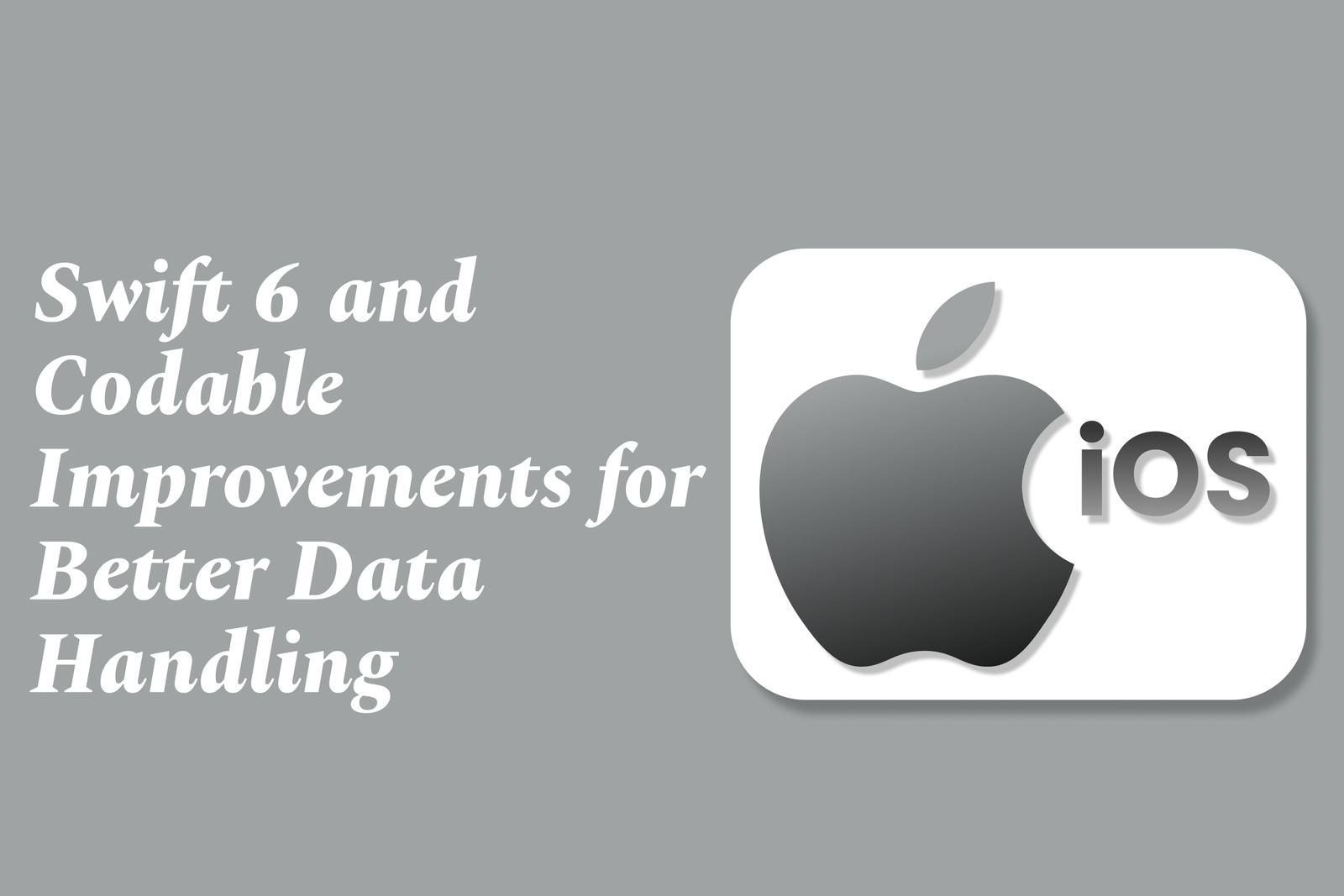Swift 6 and Codable improvements for better data handling
Swift 6 enhances data handling with improved Codable support, stricter concurrency safety, typed error handling, and ownership models. These upgrades enable safer, more efficient serialization and asynchronous data processing for robust, scalable Swift applications.
Swift 6 and Codable Improvements for Better Data Handling
1 ) Introduction to Swift 6
Swift 6 is a major release broadening Swift's capabilities beyond app development to libraries, internet scale services, and performance critical, secure code domains. It introduces new low level programming features, expanded support for Linux and Windows, cross platform APIs, and the Swift Testing library. Swift 6 aims to enhance safety, speed, and usability.
2 ) Enhanced Concurrency and Data Race Safety
Swift 6 introduces an opt in language mode enabling compiler errors to detect and prevent data races in concurrent code.
Improvements in Sendable inference and compiler analysis reduce false positive data race warnings compared to Swift 5.10.
A new Synchronization library adds low level concurrency tools like atomic operations and a mutex API.
Data race safety features continue to evolve, with community feedback guiding future refinements.
3 ) Typed Throws for Precise Error Handling
Functions can now declare specific error types they throw, enhancing clarity especially in generic and resource constrained contexts (like embedded systems).
The typed throws feature generalizes throwing and non throwing functions, enabling better compiler inference and safer error handling.
Example: Functions can explicitly specify errors, and generic functions like Sequence.map can propagate precise error types thrown by their closures.
4 ) Ownership and Non Copyable Types
Swift 6 extends Swift 5.9’s non copyable types (~Copyable) to support generic programming.
This enables defining protocols and functions that work generically with both copyable and uniquely owned types, optimizing for performance and safety by avoiding unnecessary copies.
5 ) Codable and Actor Isolation Challenges
In Swift 6, classes with @MainActor properties face compatibility issues conforming directly to Codable due to actor isolation constraints.
The recommended approach is to separate data representation into Codable structs and manage mutations in isolated actor classes via dedicated methods.
This reflects a shift toward keeping data models pure and concurrency isolated behavior separate for safer and clearer architecture.
6 ) Migration Considerations for Swift 6 Adoption
Swift 6 enables strict concurrency checks by default, which may require significant code changes, especially for existing projects using concurrency.
There is an option to continue using Swift 5 language mode to avoid immediate breaking changes but with fewer concurrency safety benefits.
Selectively enabling Swift 6 features with experimental flags can ease migration by incrementally adopting improvements.
Early adoption of full concurrency features is encouraged to avoid complex redesigns later.
7 ) Benefits and Impact on Data Handling
Swift's Codable protocol, combined with Swift 6’s advancements, enables efficient, type safe serialization and deserialization of data, critical for modern app development and beyond.
Concurrency enhancements improve robustness and safety in asynchronous data processing.
Typed throws and ownership improvements give developers more control over error handling and resource management during data operations.
In summary, Swift 6 significantly improves data handling by strengthening concurrency safety, enhancing error typing, advancing ownership models, and refining Codable usage in concurrent contexts. These improvements empower developers to build faster, safer, and more scalable applications with more predictable and maintainable data serialization workflows.
https://justacademy.in/news-detail/freelancing-with-flutter-in-2025
https://justacademy.in/news-detail/google-play-store-policy-changes-2025
https://justacademy.in/news-detail/flutter-ux-design-tips-in-2025
https://justacademy.in/news-detail/android-tv-updates-and-new-apps
https://justacademy.in/news-detail/flutter-vs-unity-for-game-dev-2025
Related Posts
Java supports GDPR and data privacy by enabling secure data handling through encryption, controlled access, and precise data management. It allows developers to minimize PII exposure, ensure data confidentiality, and design workflows that comply with data protection regulations effectively.
Java code quality tools have evolved to include advanced static analysis, integrated security checks, and AI-powered code reviews. These updates help developers detect bugs, enforce coding standards, and enhance security, streamlining the development process and improving overall code reliability.
Java remains a cornerstone in big tech companies, evolving with modern features like records, pattern matching, and virtual threads. Its robust ecosystem, enhanced performance, and growing AI integrations keep it vital for both legacy systems and innovative new projects.
Java and CI/CD pipeline optimizations streamline Java application development by automating builds, tests, and deployments. They improve efficiency through parallelization, caching, and secure secrets management, enabling faster feedback loops and more reliable, scalable software delivery.
Java supports modern cryptography standards through its flexible Java Cryptography Architecture (JCA), enabling integration of advanced algorithms like AES, EdDSA, and post-quantum tools. Libraries like Bouncy Castle offer FIPS-certified, hardware-accelerated implementations for secure development.
Java 23 enhances record patterns by enabling concise, direct destructuring of record components within pattern matching, simplifying type checks and data extraction. This improvement boosts code readability and expressiveness by reducing boilerplate in handling immutable data classes.
Java remains a top choice for mobile app backends, powering scalable, secure, and high-performance server-side solutions. Latest trends include cloud-native microservices, reactive programming, and enhanced JVM optimizations, enabling efficient, flexible, and robust mobile backend development.
Java SE 24 and LTS Java SE 21 offer enhanced features and performance, while Apache Spark 4.0.0 introduces Scala 2.13 support and advanced ML and SQL capabilities. Together, they empower developers to build scalable, high-performance data applications with modern tools.
JUnit 5 modernizes Java testing with a modular architecture, improved assertions, and seamless Java 8+ support. Beyond JUnit, tools like Mockito and AssertJ enhance mocking and assertions, creating a powerful, flexible ecosystem for writing clean, efficient Java unit tests.
Java plays a pivotal role in cloud automation tools by providing a robust, platform-independent language used to build scalable automation frameworks like Jenkins and Selenium, enabling efficient CI/CD pipelines, testing, and orchestration across diverse cloud environments.










